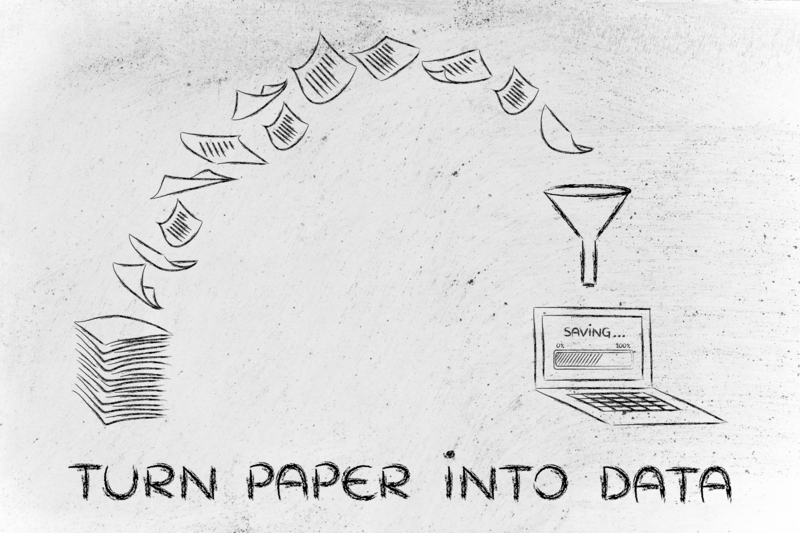Cut Costs Quickly When Dealing With Bulky Waste Items: A Comprehensive Guide
Bulky waste disposal is a challenge faced by homeowners, landlords, businesses, and communities alike. Large waste items - such as old furniture, appliances, mattresses, and renovation debris - often come with high disposal costs if not tackled strategically. Are you searching for ways to cut costs quickly when dealing with bulky waste items? You're in the right place! This article provides expert guidance on efficient, cost-effective, and environmentally responsible approaches to managing and removing large waste.
Read on to discover actionable tips, smart local resources, alternative disposal options, and proven waste-reduction techniques that will help you save time and money, while also reducing your environmental footprint.
What Are Bulky Waste Items?
Bulky waste items, also known as large waste, heavy refuse, or oversized trash, are objects that cannot be collected through standard municipal waste services due to their size, weight, or material. These may include:
- Old furniture (sofas, armchairs, beds, tables, desks, wardrobes)
- Household appliances (refrigerators, ovens, dishwashers, washing machines)
- Electronic waste (TVs, computers, printers, stereos)
- Mattresses and box springs
- Construction and renovation debris (carpets, drywall, lumber, insulation)
- Large yard waste (tree branches, logs, fence panels)
- Scrap metal and large plastics
Because of their bulk and special disposal requirements, these items often mean extra costs for removal. Luckily, numerous strategies exist to cut costs quickly when disposing of bulky waste items.

Why Is Disposing of Bulky Waste So Costly?
Understanding the main cost drivers for bulk waste removal can help you identify where to cut costs. Factors include:
- Transportation and handling fees - Moving large items requires special vehicles and manual labor.
- Landfill tipping fees - Landfills often charge premium rates for oversized items.
- Special processing - Appliances and electronics require recycling for hazardous components.
- Permit or pickup charges - Many municipalities charge per-item or per-load for bulky waste collection.
By understanding these factors, you can choose alternatives to minimize or even eliminate expenses when dealing with large waste items.
How to Cut Costs Quickly When Dealing With Bulky Waste Items
Ready to take action? Here are the best tactics for quickly reducing bulky waste disposal costs:
1. Prioritize Reuse and Repurposing
One man's trash is another's treasure! Before paying to dispose of bulky waste, assess whether items can be reused or repurposed. Consider these tips:
- Donate usable furniture, appliances, or electronics to local charities, shelters, or community centers. Many organizations offer free pickup!
- Sell or give away items through online marketplaces (Facebook Marketplace, Craigslist, Freecycle, OfferUp).
- Upcycle - Get creative! Old doors become tables, pallets turn into garden planters, etc.
- Contact local repair shops or schools that may need spare parts or refurbishable items.
2. Use Municipal Bulky Item Collection Services
Most cities and towns offer scheduled large item pickup days or special drop-off events--often for free or a small fee. To maximize savings:
- Check your local solid waste department's website for collection schedules and guidelines.
- Consolidate your items to the designated curbside location on time to avoid missed pickups and additional charges.
- Request early or additional pickups if the city permits, especially during spring/fall cleaning periods.
3. Take Items Directly to Bulk Waste Drop-Off Facilities
Save on collection fees by hauling large items yourself to designated transfer stations or recycling centers:
- Most facilities charge lower 'self-haul' rates compared to pickup services.
- Check if your city offers residents voucher programs for free or discounted bulk drop-offs.
- Sort recyclable vs. landfill items beforehand to maximize savings on disposal fees.
4. Consider Dumpster or Skip Bin Rentals Strategically
If you have an unusually large volume of bulky refuse (e.g., post-renovation), renting a dumpster can be cost-efficient:
- Compare rates from several local providers and ask about all-in flat fee pricing.
- Choose the smallest suitable size to avoid paying for unused space.
- Avoid overage charges by not exceeding weight or prohibited materials limits.
5. Get Multiple Quotes From Local Bulky Waste Removal Services
Professional junk haulers and specialized removal services can be a fast solution but costs vary widely. To minimize costs:
- Contact several providers for written estimates. Many offer free or discounted quotes online.
- Ask about price-matching or promotions for first-time customers.
- Clarify any extra fees for stairs, heavy lifting, or difficult access.
- Bundle multiple items for better per-item rates.
6. Take Advantage of Manufacturer and Retailer Take-Back Programs
Some large retailers and manufacturers offer free haul-away or recycling for bulky appliances and electronics:
- When you buy a new appliance, ask if the store will remove and recycle your old one at no extra charge.
- Mattress retailers in many states provide complimentary pickup and disposal.
- Brands like Best Buy, Staples, and Home Depot have e-waste recycling programs for large electronic items.
7. Participate in Community Clean-Up or Bulky Waste Collection Events
Many towns and associations hold annual or seasonal clean-up days where residents dispose of large items for free or at much lower rates:
- Check with your HOA or community board for upcoming "bulky item amnesty" events.
- Combine small loads with neighbors for efficiency.
- Arrive early--these events are popular and space may be limited.
Preparation Tips: Cut Costs by Prepping Bulky Waste Correctly
Maximize your savings by preparing your bulky waste items for disposal the right way:
- Disassemble large furniture and appliances--flat-packed items take less space and cost less to haul or dump.
- Remove hazardous components (fluids, batteries, bulbs) before disposal as required.
- Keep recyclables (metal, wood, e-waste) separate for special rates at recycling centers.
- Bundle small items together--some haulers charge per item, so grouped items may be cheaper.
- Label electronics or appliances needing special handling.
Avoiding Fines: Don't Dump Bulky Waste Illegally
While it may be tempting to dump bulky items illegally to save money, the consequences are severe. Municipal fines for illegal dumping can run into hundreds or thousands of dollars, and environmental damage is significant.
- Always use approved disposal routes (city services, transfer stations, legal haulers).
- If you don't know where to take your bulky waste, contact your local authority or council for guidance.
- Report illegal dumping to help keep your neighborhood clean and safe.
Comparison Table: Bulky Waste Disposal Options and Costs
| Disposal Method | Cost Range | Best For | Money-Saving Tips |
|---|---|---|---|
| Municipal Bulky Pickup | $0 - $50/pickup | Occasional large items | Fully utilize allotted pickups; combine items |
| Self-Transport Drop-Off | $10 - $60/load | DIYers, those with vehicles | Split loads with neighbors |
| Dumpster Rental | $200 - $600/week | Major cleanouts, renovations | Bundle items; smallest size bin |
| Junk Removal Services | $60 - $650/item/load | Fast, full-service needs | Compare rates; use specials |
| Donation or Selling | $0 (may profit) | Reusable, good-condition items | List online; local charities |
Additional Proven Tips to Cut Bulk Waste Disposal Costs
To become a true pro at saving money on bulky waste removal, keep these strategies in mind:
- Plan ahead--Avoid last-minute hauls and rush fees by organizing disposal during scheduled clean-out periods.
- Group your items with family, friends, or neighbors to share costs, especially for rentals or trips to the dump.
- Search for municipal or state-funded recycling events in your area, especially for electronics or appliances.
- Ask your city for free vouchers or "dump days" as many offer unpublicized assistance programs.
- For businesses, negotiate contracts with commercial haulers for discounted bulk removal rates during move-outs or renovations.

Frequently Asked Questions About Bulky Waste and Saving Money
- Can I put bulky waste on the curb anytime?
No. Most cities require you to schedule a pickup, especially for items over a certain size or weight. - Is it cheaper to dump items myself?
Often yes, especially if you have a suitable vehicle and there's a local transfer station. Check fees before going, and ask about free resident drop-off days. - What if I only have one item?
Check with local charities, as they may pick up single furniture items for free if usable. For junk, compare minimum fees from haulers or visit the next free bulky item collection event. - Are there free options for disposing of big appliances?
Yes, appliance stores, utility companies, and city e-waste programs often accept large white goods for free or a nominal fee, especially when purchasing replacements. - How can I find the cheapest option locally?
Start by calling your city's solid waste department and searching online for local "bulky waste disposal" options using your ZIP code.
Conclusion: Smarter Strategies to Cut Costs Quickly When Dealing With Bulky Waste Items
Dealing with large waste items doesn't have to mean piling up steep bills or harming the environment. By following the strategies above, you can cut costs quickly when dealing with bulky waste items, find free or cheap disposal options, and keep your property clutter-free.
Remember: Reuse and donation should always be your first step, followed by leveraging community resources and city programs. Only pay for professional removal when necessary, and always compare costs. Responsible disposal protects your budget, your home, and the planet!
Do you have more questions about cutting costs on bulky waste disposal? Share your experiences or tips below!